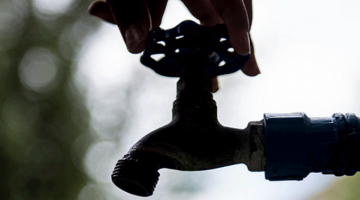Rural communities urged to set up health clubs to improve sanitation and health challenges

By Vumani Mthiyane
Rural communities have been encouraged to set up health clubs to address sanitation and health challenges faced by women and girls.
This has been prompted by an outcry from girls in Umzingwane district in Matabeleland South who are struggling to access sanitary towels and are forced to use unhygienic materials during their menstrual cycle.
Rural girls often use tree leaves, newspapers, cow dung and pieces of cloth due to failure to access sanitary wear.
A snap survey conducted by CITE in shops at business centres such as Matendele, Tshuzi, Zim Wrong, Bezha and Khumbuzi did not have sanitary pads in stock.
The few that had, the cheapest were going $1. 20 while expensive ones can fetch up to $2.50.
UMzingwane ward 6 Councillor Amanda Khumalo said this is a disturbing development that need urgently attention.
“This is a real cause for concern because the unhygienic materials used by young girls will definitely affect their health system. Sanitary pads are not available in local shops hence the lucky girls are getting theirs from relatives who stay in town or abroad. Local shops are not even selling these products,” said Cllr Khumalo, as she appealed from their developmental partners to assist local communities.
The Ministry of Women Affairs, Community Small and Medium Enterprise Development, Matabeleland South Provincial Development Officer, Mejury Sikhundla said their women health clubs can address the challenges faced by women and girls in rural communities.
“At UMzingwane district there is a Trust which has many clusters with health being one of them which takes care of such issues. Therefore, the ward councillor as a leader must work with relevant stakeholders.
“Nonetheless as a ministry, we encourage communities to come up with Health clubs, where they are taught skills in sewing re-usable sanitary pads. It is a pathetic situation where a girl child is exposed to such unhealthy situations,” said Sikhundla.
Gwanda Acting Medical Superintendent Dr. Blessing Gwarimbo said using unhygienic materials could expose girls and women to reproductive health infections.
“The use of any other materials other than sanitary pads has an implication on health as this can introduce serious infections into their female genitalia which can result in pelvic inflammatory diseases which can lead to complications like infertility or pelvic abscess to mention a few. This also has an impact socially and psychologically to these young girls,” said Dr Gwarimbo.






